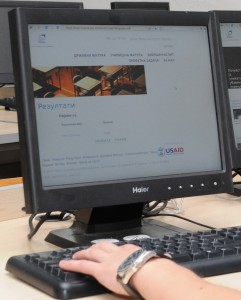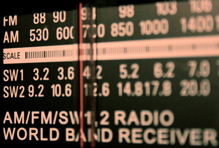 This morning, NPR’s (National Public Radio’s) Weekend edition aired two intriguing stories sharing one strong common thread. First, “CIA Tracks Public Information For The Private Eye“–a look inside the CIA’s Open Source Center:
This morning, NPR’s (National Public Radio’s) Weekend edition aired two intriguing stories sharing one strong common thread. First, “CIA Tracks Public Information For The Private Eye“–a look inside the CIA’s Open Source Center:
Secrets: the currency of spies around the world. The rise of social media, hash-tags, forums, blogs and online news sites has revealed a new kind of secret, those hiding in plain sight. The CIA calls all this information “open source” material, and it’s changing the way America’s top spy agency does business.
While you must listen to or read the full story to fully appreciate it, its gist is that this featured department of the CIA essentially uses readily-available public information in order to unlock and predict all sorts of activities they’ve traditionally tracked through covert operations. It’s a paradigm shift in how they’ve traditionally done business. Though not surprising, if you know the nature of the internet, it is fascinating nonetheless.
The second story, “Technological Innovations Help Dictators See All” dealt with the flip side:
As technology gets better–and cheaper–it’s becoming easier for authoritarian governments to watch and record their populations’ every move. John Villasenor of the Brookings Institution joins host Rachel Martin to discuss the phenomenon.
This discussion covers a real and growing problem: the online Big Brother phenomenon. Many people feel secure and anonymous online, but are not. Moreover, as tracking technologies get better, I fear it will give these governments even more control over (and methods to intimidate) their people.
[Incidentally, NPR’s Fresh Air did a story in December 2011 which focused on tracking technologies regimes use–it’s a must-listen, as well.]
I hope international broadcasters are listening to stories like these. It’s more clear than ever that VOA, BBC World Service, Radio Australia, Radio France International, Radio Netherlands Worldwide, and the like still hold the key to getting uncensored information into oppressed countries without bringing harm to listeners, namely, via broadcasts over shortwave radio.
For, as we’ve often said, shortwave radio is impossible to track, works at the speed of light, is everywhere, and requires very simple and affordable technology on behalf of the listener. Let’s keep it alive and well: burgeoning democracies rely upon it.
Yet more supporting stories for our ongoing series, “Why shortwave radio?“


 Best of all, no one can prevent these listeners from listening; no one can track them or their listening habits.
Best of all, no one can prevent these listeners from listening; no one can track them or their listening habits.